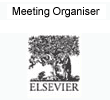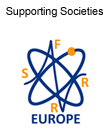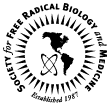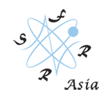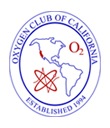
Advisory Board and Symposium Speaker
Sue Goo Rhee
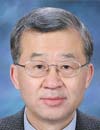 Sue Goo Rhee received his B.S. degree from Seoul National University in 1965 and Ph.D. degree in organic chemistry from the Catholic University of America in 1972. He then joined the laboratory of Earl Stadtman and Boon Chock at the NHLBI, National Institutes of Health, where he was awarded tenure in 1979, and promoted first to chief of the section of Signal Transduction in 1988 and then to chief of the Laboratory of Cell Signaling in 1994. In the fall of 2005, he returned to his native South Korea to join the faculty of Ewha Women’s University.
Sue Goo Rhee received his B.S. degree from Seoul National University in 1965 and Ph.D. degree in organic chemistry from the Catholic University of America in 1972. He then joined the laboratory of Earl Stadtman and Boon Chock at the NHLBI, National Institutes of Health, where he was awarded tenure in 1979, and promoted first to chief of the section of Signal Transduction in 1988 and then to chief of the Laboratory of Cell Signaling in 1994. In the fall of 2005, he returned to his native South Korea to join the faculty of Ewha Women’s University.
Dr.Rhee’s research until 1986 was primarily concerned with the regulation of glutamine synthetase. During this time his group observed that yeast glutamine synthetase is rapidly inactivated in a thiol-containing buffer yet retains activity in crude extracts containing the same thiol. This observation led to Dr. Rhee’s discovery of a novel antioxidant enzyme now known as peroxiredoxin. Dr. Rhee’s research interests also include the transmembrane signaling pathways involving phospholipases and the intracellular messenger function of
H2O2.
EDUCATION
1961-65 B.S. Chemistry, Seoul National University, Seoul, Korea
1967-72 Ph.D. Organic Chemistry, Catholic University of America, Washington, DC
CHRONOLOGY OF EMPLOYMENT
1965-67 ROTC Officer (Lieutenant), Korean Army
1973-79 Postdoctoral and Staff Fellow, Laboratory of Biochemistry, National Heart, Lung, and Blood Institute (NHLBI), National Institutes of Health (NIH)
1979-88 Senior Biochemist, Laboratory of Biochemistry, NHLBI, NIH
1988-94 Chief, Section on Signal Transduction, Laboratory of Biochemistry, NHLBI
1994-05 Chief, Laboratory of Cell Signaling, NHLBI, NIH
1996-05 Senior Biomedical Research Service
2005- Distinguished Professor, Division of Molecular Life Science, Ewha Woman’s University
AWARD/HONOR:
1990 Pfizer Lectureship Award from the Clinical Research Institute of Montreal
1991 NIH Director’s Award
1992 Biomega Lectureship Award from the University of Montreal Medical School
1995 Ho Am Award in Science, 1995
1996 Elected to the Korean Academy of Science and Technology (2001, Life Time Member)
2000 The 6th Ilchun Lectureship Award from the Korean society of Molecular Biology
2003 Scientific Leadership Recognition awarded by the Oxygen Club of Washington DC
2004 NIH Outstanding Mentor Award
2005 Discovery Award, The society of Free Radical Biology and Medicine
2006 Elected to the First National Honor Scientist of Korea
EDITORIAL ACTIVITIES
Member of Editorial Board, The Journal of Biological Chemistry, 1991-1995, 1998-2003, 2007-
Editor, BioFactors, 1991- 1998
Editorial Advisory Panel, The Biochemical Journal 1992-1997
Editor, Current Topics in Cellular Regulation 1998-2002
Editor-in-Chief, Molecules and Cells, 2006-
SELECTED PUBLICATIONS
- Suh, P.G., Ryu, S.H., Moon, K.H., Suh, H.W., and Rhee, S.G.: Cloning andsequence of multiple forms of phospholipase C. Cell 54, 161-169, 1988
- Rhee, S.G., Suh, P.-G., Ryu, S.H., and Lee, S.Y.: Studies of inositol phospholipid-specific phospholipase C. Science 244, 546-550, 1989.
- Kim, H.K., Kim, J.W., Zilberstein, A., Margolis, B., Kim, C.K., Schlessinger, J., and Rhee, S.G.: PDGF stimulation of inositol phospholipid hydrolysis requires PLC-γ1 phosphorylation on tyrosine 783 and 1254. Cell 65, 435-441, 1991.
- Chae, H.Z., Robinson, K., Poole, L.B., Church, G., Storz, G., and Rhee, S.G.: Cloning and sequencing of thiol-specific antioxidant from mammalian brain: Alkyl hydroperoxide reductase and thiol-specific antioxidant define a large family of antioxidant enzymes. Proc. Natl. Acad. Sci. USA, 91, 7017-7021, 1994.
- Woo, H. A., Chae, H. Z., Hwang, S. C., Yang, K.-S., Kang, S. W., Kim, K., and Rhee, S. G., Reversing the inactivation of peroxiredoxins caused by cysteine sulfinic acid formation. Science 300, 653-656, 2003.
- Choi, M. H., Lee, I. K., Kim, G. W., Lee, B. I., Han, Y. H., Yu, D. Y., Park, H. S., Kim, K. Y., Lee, J. S., Choi, C., Bae, Y. S., Rhee, S. G.* and Kang, S. W.*: A regulatory role for peroxiredoxin II in platelet-derived growth factor signal transduction and vascular remodeling. Nature 435, 347-353 2005. (*co-corresponding author)
- Kwon, J., Lee, S. R., Yang, K. S., Ahn, Y., Kim, Y. J., Stadtman, E. R., and Rhee. S. G.: Reversible oxidation and inactivation of the tumor suppressor PTEN in cells stimulated with peptide growth factors. PNAS 101, 16419-16424, 2004.
- Sue Goo Rhee. H2O2’ a Necessary Evil for Cell Signaling. Science. 312, 1882-1883, 2006.
- Woo, H. A., Yim, S. H., Shin, D. H., Kang, D., Yu, D.-Y., and Rhee, S. G. Inactivation of peroxiredoxin I by tyrosine phosphorylation and localized buildup of H2O2 during cell signaling. Cell, 140, 517-528, 2010
- Bae, S. H., Sung, S. H., Cho, E. J., Lee, S. K., Lee, H. E., Woo, H. A., Yu, D.-Y.,, Kil, I. S. and Rhee, S. G.: Concerted Action of Sulfiredoxin and peoxiredoxin I Protects Against Alcohol-Induced Oxidative Injury in Mouse Liver. Hepatology 53, 945-953, 2011
« Go Back
